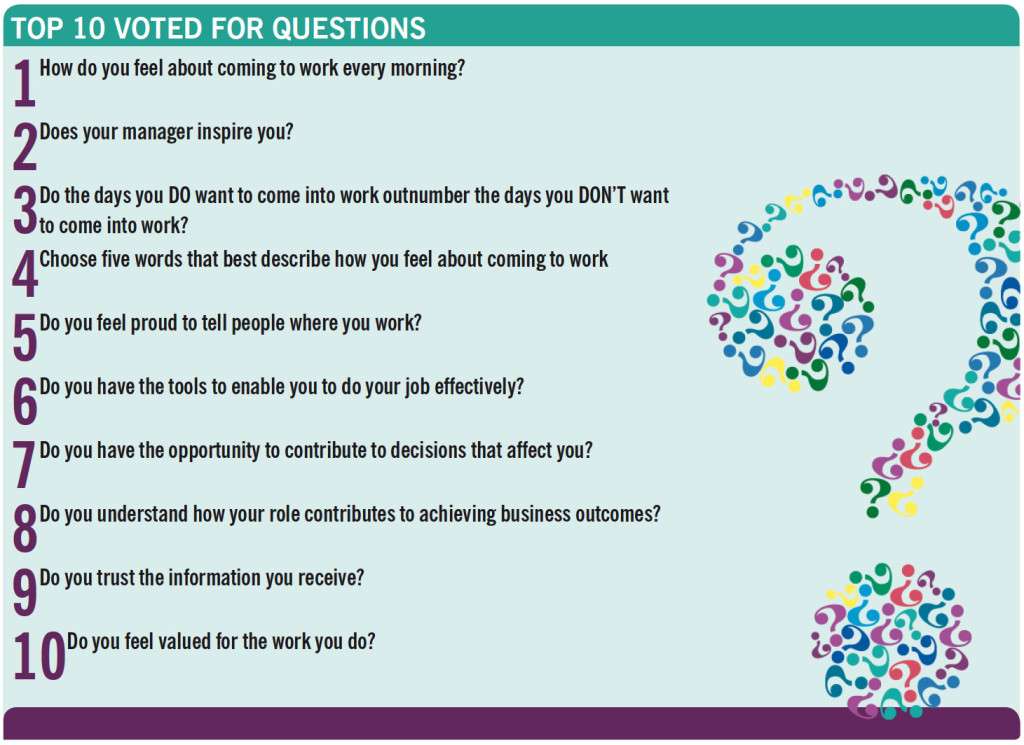According to the Society for Human Resource Management, 80% of firms conduct surveys to gauge employee motivation. And that trend is continuing with pulse survey questions being teed up across Corporate America on employee desktops and mobile devices.
However, the dichotomy of this process according to Aon, a human resources consulting firm, is that less than 20% of team members believe their survey results will result in action by the organization.
So, in order to prevent this “analysis by paralysis” stance by management, many organizations, including Google, are investing in pulse survey questions of their employees as short, regular check-ins to determine how the team is feeling. This blog post will look at what pulse surveys are, typical questions and the potential problems with this process.
What is a Pulse Survey?
A pulse survey is a tool often used by companies to measure their operating climate and overall operational performance. A pulse survey is sent to employees on a periodic basis. Such a survey helps to get a sense of the “health” of the company by evaluating employee satisfaction, productivity, and overall attitude toward the organization.
What are Typical Pulse Survey Questions?
According to Melcrum, a communication research company, here are 10 of the most frequently asked questions for pulse surveys:
As you can see, these questions are short and to the point. However, some organizations are asking these questions on a daily, weekly or monthly basis in an attempt to get ahead of any problems before they happen. And while that is admirable and possibly workable, if overdone it can seem like management is collecting data for the sake of data.
The main idea is that the company take action quickly and in two companies they did just that – Limeade and Metis Communications.
At Limeade they send out a one question survey to all 115 employees weekly. Since much of their workforce is virtual, they found out that their remote employees were not as happy as their headquarter ones. The solution? During times of mandatory employee participation, they give extra support to the virtual employees including better teleconferencing tools.
Metis Communications polled employees about their chairs and found some employees preferred standing desks. Within weeks these type of desks showed up at the company.
So What’s the Problem with Pulse Survey Questions?
Because we are moving toward a real-time society with expectations that answers will be come within minutes of postings, team leaders may be setting themselves up for failure by asking too many questions and having very few timely responses. If you ask a lot of questions, you should be prepared with a lot of answers.
In addition, a question like “Are you happy here?” and many of the other pulse questions require simple yes or no answers. And while happiness with a job can be day-to-day, a simple yes or no isn’t going to help management UNLESS it is a conversation starter. And this is what it should be. If I answer no to the happiness question, I would expect and appreciate a visit or call from my boss to dig deeper.
Lastly, pulse surveys were not initially intended to be distributed on a daily or even weekly basis. Don’t drive your employees crazy with too many questions. Respect their time as much as you do your own.
What Fun Team Building Has to Offer
Our Atlanta team building organization can take the input from your pulse survey questions and help customize a team building day that will make a difference for your employees. Give Larry Lipman a call at 770.333.3303 to learn more!







